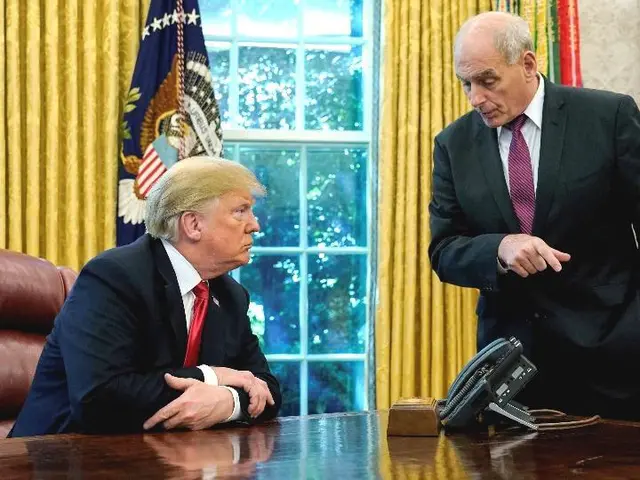British Prime Minister David Cameron and former prime minister John Major on Wednesday made significant interventions in the campaign over the Scottish referendum with newspaper appeals for Scots voters to vote 'no' to independence in the referendum next week.
Cameron made an emotional appeal in a 900-word article for the Daily Mail newspaper in which he pleaded with Scots to stay in the 300-year-old union.
"Let no one in Scotland be in any doubt: we desperately want you to stay; we do not want this family of nations to be ripped apart. The United Kingdom is better together," wrote Cameron.
He added that "as individuals and as nations, we have done extraordinary things" and cited parliamentary democracy, abolition of slavery, and the defeat of fascism in the Second World War as examples.
Cameron had Wednesday abandoned the usual parliamentary routine of weekly Prime Minister's Questions to travel to Scotland to deliver in person his message to support the union.
The other two major party leaders, opposition Labor party leader Ed Miliband and Cameron's coalition partner Nick Clegg, deputy prime minister and leader of the Liberal Democrats both travelled to Scotland too, underlining the importance that political leaders place on preserving the union between Scotland and the rest of the United Kingdom.
In his article Cameron promised that a vote to retain the union would mean that Scotland would quickly get more powers of government.
"A 'No' vote doesn't mean a vote for the status quo -- No doesn' t mean no change. It means significant further devolution for Scotland -- major new powers over tax, spending and welfare all being passed to Scotland," Cameron wrote.
He added: "Power for Scotland over how much money it borrows, what taxes it raises, how it spends that money -- all agreed by November, all put into draft legislation by January."
Cameron criticized the vagueness of the promises of the 'yes' camp, which wants independence, writing "those who support separation offer only question marks."
Cameron was joined in the newspaper pages by former prime minister John Major, who wrote a lengthy article in The Times.
In his article Major described the union of Scotland with the rest of Britain as the "most successful union in history" and warned that breaking up the union would mean "the whole of the UK would be damaged."
Major also warned: "Britain's place as a member of the permanent five of the UN would no longer be viable."
Major also stressed the prospect of Scotland becoming independent leading to louder calls for independence in Wales.
Major's final point in his article was about the British constitution.
He warned of long-term serious changes as a result of what has been offered to Scotland, even if separation is defeated.
"No one, I believe, has fully appreciated the scale of what this might mean. We face a constitutional revolution," he concluded.
 简体中文
简体中文










